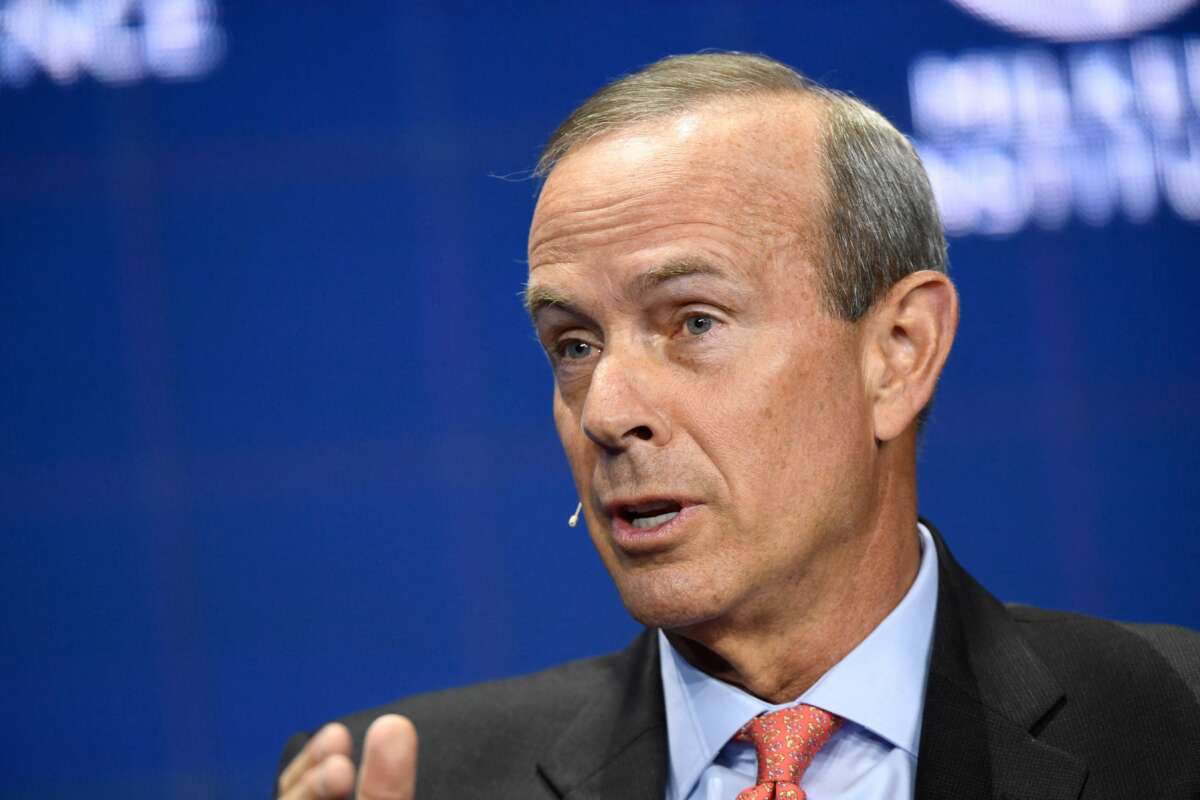U.S. oil companies ExxonMobil and Chevron announced their second-highest profits in a decade on Friday, with both companies paying out a record amount to shareholders in 2023, which was the hottest year on record due largely to the burning of fossil fuels.
“In 2023, we returned more cash to shareholders and produced more oil and natural gas than any year in the company’s history,” Chevron chief executive Mike Wirth boasted in a statement.
Exxon also said it processed a record amount of oil and gas through its refineries. While profits for both companies have declined relative to their record hauls in 2022, Exxon CEO Darren Woods told CNBC’s “Squawk Box” Friday that “we’ve more than doubled our earnings power from 2019 to 2023.”
Exxon reported a total of $36 billion in profits with $32.4 billion paid to shareholders, while Chevron took home $21.4 billion and paid out $26.3 billion, putting them behind only Apple, Microsoft, and Google parent Alphabet for total payouts from a U.S. company, according to a Wall Street Journal analysis. The shareholder payouts far surpassed what either company had planned to spend on climate solutions, the Journal said.
“While millions of Americans suffered in extreme weather events in 2023, Exxon and Chevron raked in huge profits from the fossil fuels driving those disasters,” Global Witness strategy lead Alice Harrison said in a statement. “They’re now choosing to reward their shareholders instead of investing in clean energy in a brazen wealth transfer from energy consumers to Big Oil shareholders.”
Global Witness said that the combined nearly $59 billion that the two companies paid to shareholders was equal to what every household in California and Texas paid in energy bills last year and would be enough to pay for nearly two-thirds of the damages from the year’s worst weather disasters in the U.S.
Both companies also have major mergers planned for 2024: Chevron with Hess and Exxon with Pioneer Natural Resources. If these mergers go through, the two companies’ greenhouse gas emissions will spike by more than 20% this year, Global Witness calculated based on Rystad Energy data. The two companies would therefore release more climate pollution in 2024 than Australia, Brazil, and Spain combined.
“These companies are in open rebellion against scientists, energy consumers, and life on planet earth, with their emissions set to rise sharply by 20% in 2024,” Harrison said. “This means more catastrophic weather events, more deaths worldwide, more hardship, and more suffering.”
Greenpeace USA focused on the harm that Chevron has caused to communities in California, where it is headquartered.
“This greedy company drains our wallets, drills in our neighborhoods, and poisons our air, all while locking us into a future filled with climate-driven disasters,” Greenpeace USA’s California climate campaign director Zachary Norris said in a statement.
In California, Norris said, fossil fuels drive both local pollution and increased climate disasters like floods and wildfires. Chevron is one of three companies that holds two-thirds of the state’s orphaned oil wells, which release both greenhouse gases and carcinogens and would cost $10 billion to cap and clean, according to a Sierra Club analysis. Often these wells are positioned near low-income communities of color.
“Chevron needs to face its destructive legacy: stop drilling, start paying to clean up their mess, and fund the transition to a clean energy economy,” Norris said.
Press freedom is under attack
As Trump cracks down on political speech, independent media is increasingly necessary.
Truthout produces reporting you won’t see in the mainstream: journalism from the frontlines of global conflict, interviews with grassroots movement leaders, high-quality legal analysis and more.
Our work is possible thanks to reader support. Help Truthout catalyze change and social justice — make a tax-deductible monthly or one-time donation today.
